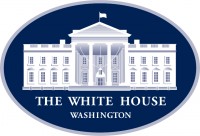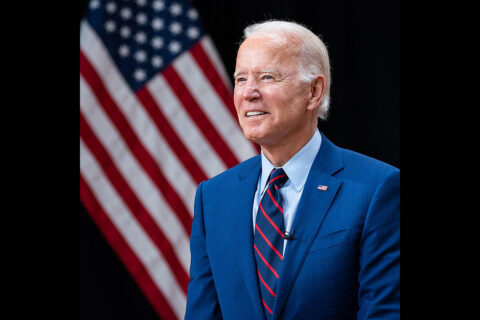 Washington, D.C. – PRESIDENT JOE BIDEN: Good afternoon. The Vice President and I had a very productive meeting with a bipartisan group of senators and House members to address an issue of both concern to our economic security, as well as our national security: the resilience and reliability of our critical supply chains.
Washington, D.C. – PRESIDENT JOE BIDEN: Good afternoon. The Vice President and I had a very productive meeting with a bipartisan group of senators and House members to address an issue of both concern to our economic security, as well as our national security: the resilience and reliability of our critical supply chains.
This is a critical area where Republicans and Democrats agreed it was one of the best meetings — it’s the best meeting I think we’ve had so far, although we’ve only been here about five weeks. But it was like the old days — people actually are on the same page.

There were — good, bipartisan work has already been done. The leaders of this operation in the House and Senate already did — have done great work, and I want to thank them for their leadership.
We’re here to build on that. And the bottom line is simple: The American people should never face shortages in the goods and services they rely on, whether that’s their car or their prescription medicines or the food at the local grocery store.
And remember, the shortages in PPE during this pandemic –that meant we didn’t have the masks; we didn’t have gowns or gloves to protect our frontline health workers.
We heard horror stories of doctors and nurses wearing trash bags over their gown — over their dress in order to — so they wouldn’t be in trouble, because they had no gowns. And they were rewashing and reusing their masks over and over again in the OR.
That should never have never happened. And this will never happen again in the United States, period. We shouldn’t have to rely on a foreign country — especially one that doesn’t share our interests or our values — in order to protect and provide our people during a national emergency.
That’s why one of the first executive orders I signed, as some may remember, was to ensure that we’re manufacturing more protective equipment for healthcare workers here at home.
And today, I’m shortly going to be signing another executive order that’ll help address the vulnerabilities in our supply chains across additional critical sectors of our economy so that the American people are prepared to withstand any crisis and rely on ourselves.
This is about making sure the United States can meet every challenge we face in this new era — pandemics, but also in defense, cybersecurity, climate change, and so much more. And the best way to do that is by protecting and sharpening America’s competitive edge by investing here at home. As I’ve said from the beginning, while I was running: We’re going to invest in America. We’re going to invest in American workers. And then we can be in a much better position to even compete beyond what we’re doing now.
Resilient, diverse, and secure supply chains are going to help revitalize our domestic manufacturing capacity and create good-paying jobs, not $15 an hour — which is what we need to do someday. And sooner is better, in my view. But jobs that are at the prevailing wage.
We’re going to spare new — spur new opportunities for small businesses, communities of color, and economically distressed areas. And I will drive new investment in research and innovation and our workforce, investing in training and university partnerships that are going to lead to new technologies and new solutions.
And all this won’t just strengthen our domestic capacity, it will help unleash new markets around the world and grow opportunities for American businesses to export their goods that we’re going to be making.
These are the kinds of commonsense solutions that all Americans can get behind — workers and corporate leaders, Republicans and Democrats. It’s about resilience, identifying possible points of vulnerabilities in our supply chains, and making sure we have the backup alternatives or workarounds in place.
Remember that old proverb: “For want of a nail, the shoe was lost. For want of a shoe, the horse was lost.” And it goes on and on until the kingdom was lost, all for the want of a horseshoe nail. Even small failures at one point in the supply chain can cause outside impacts further up the chain.
Recently, we’ve seen how a shortage of computer chips — computer chips like the one I have here — you can hardly see it I imagine; it’s called a “semiconductor” — has caused delays in production of automobiles that has resulted in reduced hours for American workers. A 21st century horseshoe nail.
This semiconductor is smaller than a postage stamp, but it has more than 8 billion transistors — 8 billion transistors, 10,000 times thinner than a single human hair in this one chip. These chips are a wonder of innovation and design that powers so much of our country, enables so much of our modern lives to go on — not just our cars, but our smartphones, televisions, radios, medical diagnostic equipment, and so much more.
We need to make sure these supply chains are secure and reliable. I’m directing senior officials in my administration to work with industrial leaders to identify solutions to this semiconductor shortfall and work very hard with the House and Senate. They’ve authorized the bill, but they need (inaudible) $37 billion, short term, to make sure we have this capacity. We’ll push for that as well. But we all recognize that the particular problem won’t be solved immediately.
In the meantime, we’re reaching out to our allies, semiconductor companies, and others in the supply chain to ramp up production to help us resolve the bottlenecks we face now. We need help to stop — we need to stop playing catch up after the supply-chain crisis hit. We need to prevent the supply chain crisis from hitting in the first place.
And in some cases, building resilience will mean increasing our production of certain types of elements here at home. In others, it’ll mean working more closely with our trusted friends and partners, nations that share our values, so that our supply chains can’t be used against us as leverage.
It will mean identifying and building surge capacity that can quickly be turned into and ramped up production in times of emergency. And it will mean investing in research and development, like we did in the ’60s, to ensure long-term competi- — competitiveness in our manufacturing base in the decades ahead.
The order I’m about to sign does two things. First, it orders a 100-day review of four vital products: semiconductors — one; key minerals and materials, like rare earths, that are used to make everything from harder steel to airplanes; three, pharmaceuticals and their ingredients; four, advanced batteries, like the ones used in electric vehicles.
There’s strong bipartisan support for fast reviews of these four areas because they’re essential to protecting and strengthening American competitiveness.
Second, this order initiates a long-term review of the industry basis of six sectors of our overall economy over the next year. These reviews will identify policy recommendations to 40 of [fortify] our supply chains, to — it should be to fortify our supply chains at every step, and critically, to start implementing those recommendations right away. We’re not going to wait for a review to be completed before we start closing the existing gaps.
And as we implement this work, my administration will draw on a full range of American talent — including labor and industry leaders, policy experts, scientists, farmers, engineers — to get their input.
I’m grateful for the members of Congress who came to see me — Republican leaders, as well as Democrats. They’re leading the way. We’re going to stay in close contact with members of both sides of the aisle and keep advancing our shared goals.
Everyone has a role to play to strengthen our supply chains in our — and our country. This is the United States of America. We are better prepared to meet the challenges of the 21st century than any country in the world. There’s nothing, nothing, nothing we’ve ever failed to achieve if we work together. And that’s what we decided to do today, and that’s what we’re going to do: work together.
(The executive order is signed.)
Thank you all very much.
Q Mr. President, are you disappointed that more of your Cabinet nominees have not yet been confirmed by the Senate?
THE PRESIDENT: I am, but I don’t so much blame it on the Senate; I blame it on the failure to have a transition that was rational.
As you know, previous administrations had a significant number of their — their Cabinet confirmed before they even were sworn in. That’s the tradition. But we’re doing fine. I think we’re going to be in good shape.
Q What about Neera Tanden?
THE PRESIDENT: Thank you.
Q Are you going to talk to the King of Saudi Arabia?
THE PRESIDENT: I’m going to be talking to him. I have not spoken to him yet.
Q Are you going to speak to him today?
Q Sir, sorry, are you willing to say if you’ve read the Khashoggi report yet?
THE PRESIDENT: Am I going to take what? I’m sorry.
Q Have you read the Jamal Khashoggi report yet from the ODNI?
THE PRESIDENT: Yeah. Yes, I have.
Q Thank you.
THE PRESIDENT: Thank you.



